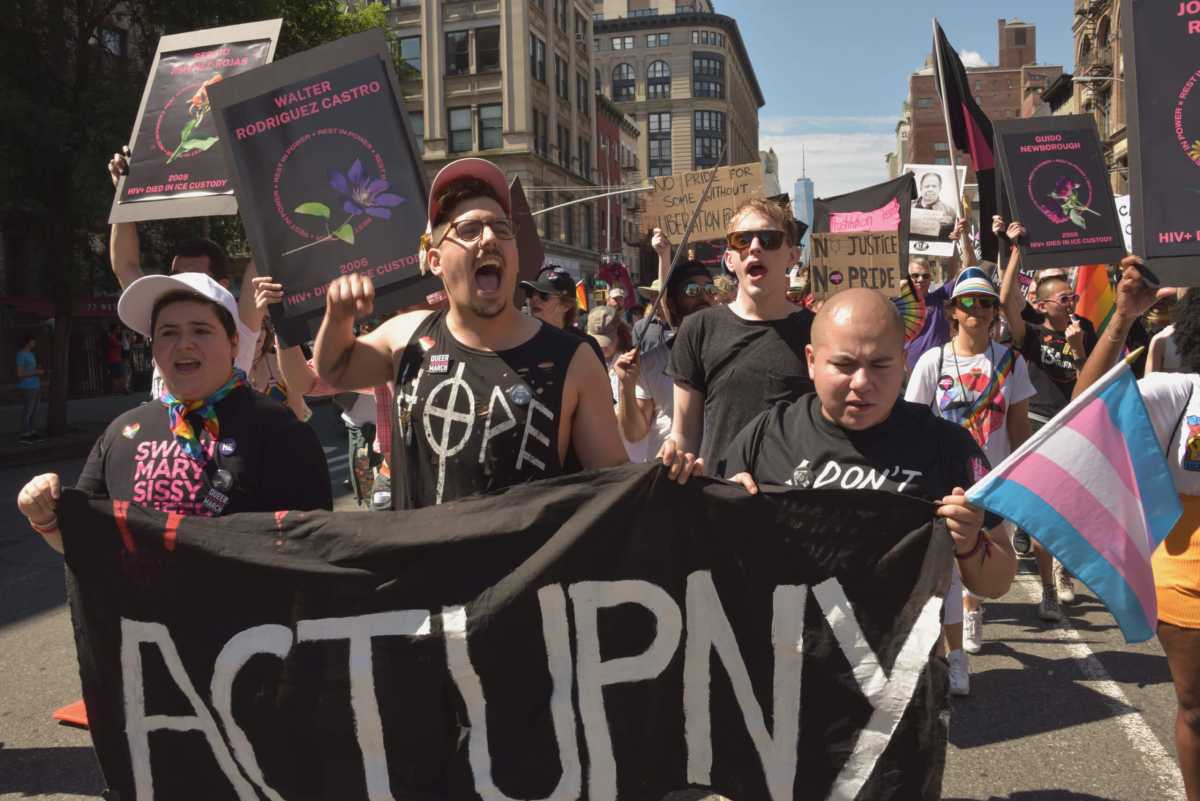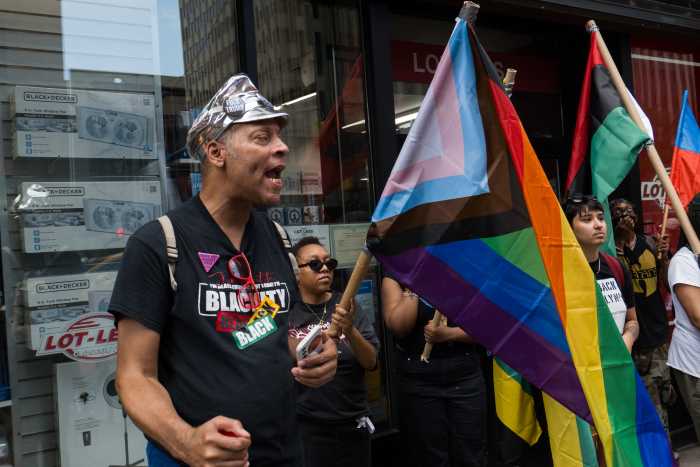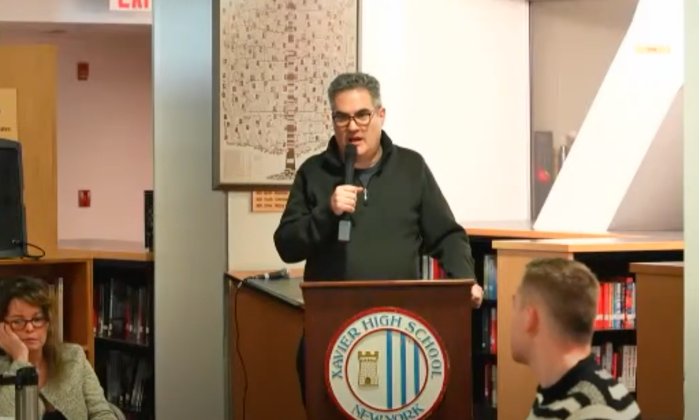Responding to a lawsuit brought against ACT UP New York by a former member of the HIV activist group who was expelled for allegedly harassing other members, nearly 175 ACT UP New York members, a turnout that the group has not seen in many years, voted to change the group’s bylaws and to establish a team to re-examine the harassment claims that resulted in the member being expelled.
The extraordinary Jan. 8 meeting resulted from a 2023 lawsuit brought in state court by Carlos Aitcheson-Valentin, a former ACT UP New York member who was expelled in 2021 for allegedly harassing other members. That harassment purportedly began in 2020, prompting ACT UP New York to develop an anti-harassment policy that included creating a Harassment Grievance Team that was empowered to investigate harassment complaints and remedy the harassment, including expelling any member who was found to have engaged in harassment.
In August of 2021, the team informed Aitcheson-Valentin that two harassment complaints had been filed against him. He was given seven days to respond to the allegations that included issuing threats and repeatedly contacting other members after they had asked him to stop. He was asked to stop attending ACT UP New York meetings and protests for the duration of the investigation into the complaints. The team expelled him from ACT UP New York on Sept. 21, 2021.
In his response, Aitcheson-Valentin argued that harassment under ACT UP New York’s policy was defined as harassing behavior based on several protected classes, including sexual orientation and gender identity and expression, and that neither complaint said that had occurred.
“The two complainants have neither alleged nor are the exchanges based on any such conduct nor based on any such protected class,” Aitcheson-Valentin wrote in his Aug. 21, 2021 letter to the team.
Aitcheson-Valentin wrote that the alleged harassing behavior occurred more than a year before the complaints were filed and only after disagreements over policy and a contested election in the group. He noted that one of the two complainants was a member of the Harassment Grievance Team and recused only after Yetta Kurland, his attorney at the time, began communicating with ACT UP New York.
After Aitcheson-Valentin was expelled, he filed an appeal under the harassment policy in October 2021. ACT UP New York did not respond to that appeal until 2023 and only after Thomas Hillgardner, Aitcheson-Valentin’s current attorney, sent ACT UP New York a letter in November 2022 demanding that they respond and reverse its decision on Aitcheson-Valentin’s expulsion. In March 2023, a judge gave ACT UP New York 45 days to respond to the appeal. It was disclosed at the Jan. 8 meeting that Aitcheson-Valentin had resigned from ACT UP New York on July 26, 2020, which could mean he was no longer entitled to any protections under ACT UP New York’s bylaws or harassment policy. ACT UP New York affirmed Aitcheson-Valentin’s expulsion in April 2023.
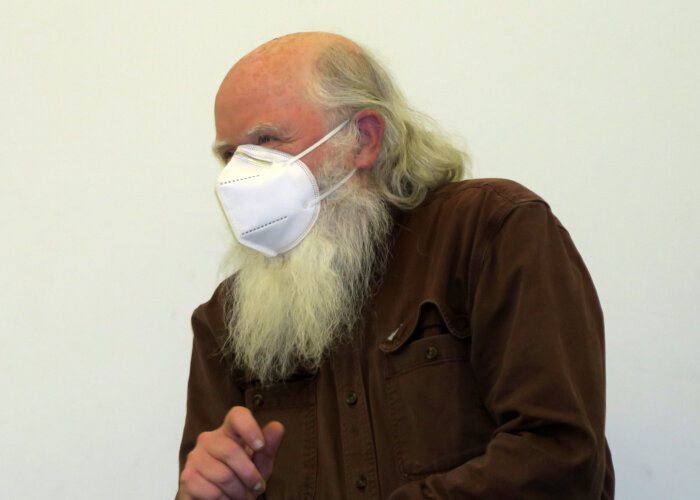
The lawsuit, which was filed in August 2023, was first filed as an Article 78 action in January 2023. An Article 78 action is typically used to challenge a decision or action by a government agency, but it can be used to challenge a decision or action by a private organization that is governed by state law. ACT UP New York was incorporated in New York as a 501(c)(4) non-profit in 1991.
The lawsuit charges that ACT UP New York denied Aitcheson-Valentin due process by ignoring its own rules and bylaws when it expelled him and that it violated state law governing non-profits. Among the issues in the case is the definition of a quorum under state law. Some non-profits have thousands of members requiring them to turn out half of their thousands of members plus one to achieve a quorum at a meeting. That would effectively make it impossible for those non-profits to take a vote.
ACT UP New York defines a voting member as someone who attended two meetings at any time over the group’s 36-year history. That means the group could have thousands of members. Recognizing the impossibility of meeting that quorum requirement, state law requires that non-profits have a minimum of 100 voting members at meetings to make valid decisions. With the exception of the Jan. 8 meeting, ACT UP New York has typically had far less than 100 voting members at recent meetings.
When ACT UP New York sent up a digital distress rocket on social media prior to the Jan. 8 meeting, it consistently emphasized that it needed at least 100 voting members to attend. It also suggested that the lawsuit represented a threat that could end ACT UP New York’s existence. While Hillgardner said he might seek attorney’s fees in his November letter, they were denied in an August 2023 order “as petitioner did not cite a basis upon which it could recover those fees.”
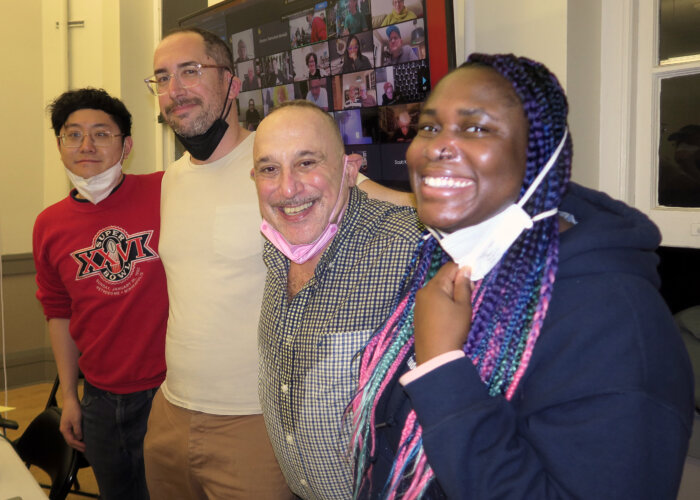
The Jan. 8 meeting was held to correct some of these errors. The first motion amended ACT UP New York’s bylaws to define a quorum.
“The theory is that ACT UP is never allowed to act except when 100 [members] are present,” said Remy Green, the group’s pro bono attorney. “This is how we have addressed this under New York law.”
This means that the group could define a quorum using a number below 100 in the future and still comply with state law.
“This is not a vote on Carlos’ claims,” said Brian Zabcik, an ACT UP New York member. “The proposal is only establishing a quorum number going forward.”
The second motion affirmed every vote ACT UP New York has taken over the past 36 years and the third motion established a new Harassment Grievance Team that must report back to the assembly on the Aitcheson-Valentin matter on January 15. Those motions passed with overwhelming support, ranging from 160 “Yes” votes on the first motion to 156 “Yes” votes on the second motion to 145 “Yes” votes on the third motion, with 13 “No” votes or abstentions altogether.
What Aitcheson-Valentin is confronted with is a membership, who mostly have not been active in the group in years but who see their experience in ACT UP New York as deeply meaningful and substantial. Comments by a number of members during the meeting saw his actions as destructive and a real threat to ACT UP New York.
On Jan. 10, Aitcheson-Valentin posted a video on his Facebook page on which he wrote, “Have a great day friends and haters well…” He sang “F**k you” over and over again. He did not explicitly address ACT UP New York or any group.
I was an active member of ACT UP New York from the late 80s through the early 90s. I attended the January 8 meeting and voted “Yes” on all three motions.

